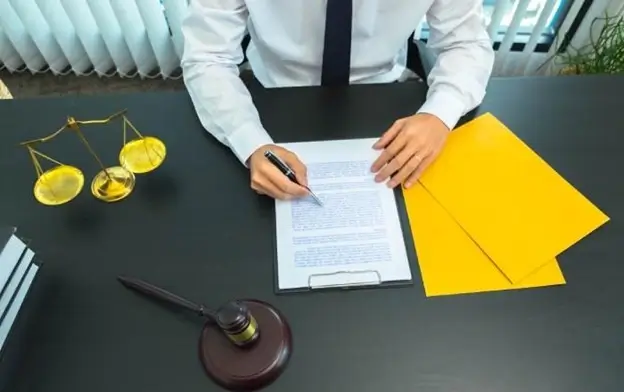California’s Lemon Law, formally known as the Song-Beverly Consumer Warranty Act, is a critical consumer protection statute designed to assist buyers dealing with a defective vehicle. Enforced under the California Civil Code, this automobile lemon law covers new and sometimes used vehicles that suffer from significant car defects affecting safety, use, or value, often overlooked in the purchase agreement or obscured in a vehicle history report. The law ensures manufacturers comply with their auto dealer obligations and car warranty coverage, providing remedies such as vehicle replacement, car buyback, or a refund claim.
Consumers who encounter repeated car repair disputes related to engine defects, transmission problems, or car safety defects stemming from manufacturer defects or auto fraud can invoke their rights through the lemon law claim process. This process may involve car arbitration or court litigation, potentially overseen by the California Court of Appeal, providing avenues for compensation or repair under the state lemon law. Moreover, the California Department of Consumer Affairs offers guidance on eligibility and consumer rights.
The statute also intersects with other common issues such as auto recall events, car odometer fraud, mileage misrepresentation, and cases involving car lease lemon law. Understanding these nuances is essential, as some vehicles purchased from brands like Toyota, Ford Motor Company, General Motors, Honda, Volkswagen, Tesla, Inc., Nissan, BMW, Mercedes-Benz, Lexus, and Audi may have different warranty or defect histories verified through tools like Carfax, Kelley Blue Book, or Edmunds. For more information about legal services and case evaluations, visit mcmillanlawgroup.com to connect with experienced attorneys.
Key Qualities to Look for in a Lemon Law Attorney
Finding the best automobile attorney to represent your lemon law case means focusing on several critical qualities. First is expertise in the lemon law statute, specifically the state lemon law laws codified in the California Civil Code. An attorney with a deep understanding of the lemon law claim process can skillfully navigate complex issues like dealer disputes, warranty claims, and auto repair shop challenges.
A reputable lemon law attorney should demonstrate a track record of handling both new car lemon law and used car lemon law cases successfully, managing everything from car settlement negotiations to court litigation. Navigating disputes involving defective vehicles with engine defects, transmission problems, or failures to disclose critical defect disclosure information requires legal acumen and thorough knowledge of car arbitration procedures and consumer rights.
Additionally, ideal candidates are well-versed in combating auto fraud, including uncovering car odometer fraud and other deceptive practices like mileage misrepresentation. This vigilant approach ensures your attorney actively protects your interests against unfair practices by dealers or manufacturers. Moreover, affiliations with the California Bar Association and positive reputations on platforms such as the Better Business Bureau and endorsements by Consumer Reports reflect the attorney’s professionalism and client satisfaction.
Why Experienced California Lemon Law Lawyers Deliver Better Results
The complexities inherent in the California Lemon Law make experience a vital asset. Seasoned lemon law lawyers bring an intimate familiarity with the motor vehicle code, knowledge of precedent cases decided by the California Court of Appeal, and skillful negotiation tactics tailored to maximizing a client’s compensation.
Experienced attorneys adeptly handle negotiations related to vehicle replacement, car buyback, or refund claim requests, often out-of-court, saving clients time and legal fees. Their expertise benefits clients with detailed vehicle inspections, scrutiny of warranty conditions, and validation of lemon law eligibility criteria critical to forming viable claims.
They are also proficient in addressing derivative claims, such as those arising from auto recall notifications, auto insurance claims coinciding with lemon law disputes, and possible class action lawsuits in cases of widespread manufacturer defect issues affecting specific vehicle models. By leveraging relationships with auto repair shops, consulting third-party experts, and gathering vital documentation—including auto purchase contracts and prior car repair disputes—experienced attorneys ensure comprehensive case preparation.
Notably, clients with vehicles from major automakers such as Tesla, Inc., BMW, and Honda, where certain models have known defect reports, benefit from lawyers who regularly handle brand-specific lemon law claims. This specialization can facilitate faster resolutions in line with customers’ consumer rights and car warranty coverage.
How to Verify the Track Record and Success Rate of a Lemon Law Lawyer
When assessing lemon law attorneys, verifying a proven success rate is paramount. Potential clients should request case references or summaries of car settlements, especially those concerning complex issues like engine defects, transmission problems, or contentious dealer disputes. Tracking this information through independent reviews on Better Business Bureau and Consumer Reports helps affirm credibility.

Referrals from the California Department of Consumer Affairs or checking membership and disciplinary history with the California Bar Association are also prudent steps. A lawyer’s ability to achieve favorable outcomes in car arbitration or court litigation signals capability in handling all facets of the lemon law claim process.
Moreover, confirming whether the attorney has experience dealing with both new car lemon law and used car lemon law, including cases involving car lease lemon law, is important as eligibility and statutes may vary. Websites like Edmunds and Kelley Blue Book can help verify vehicle valuations post-claim, ensuring settlements honor true market value.
Inquiries about whether the attorney has managed claims involving specific manufacturers or known auto recall defects demonstrate specialization breadth. Attorneys who transparently outline their procedural approach—such as assistance with warranty claim submissions, documentation review (e.g., vehicle inspection reports), and legal representation throughout disputes—provide clients confidence in their commitment.
The Importance of Free Consultations and Case Evaluations
Many reputable California lemon law attorneys offer free consultations and case evaluations, providing an invaluable opportunity for prospective clients to discuss their defective vehicle issues and understand their rights under the California Lemon Law. This intake process often includes preliminary assessments of lemon law eligibility based on vehicle history, warranty coverage, and repair attempts.
During these evaluations, attorneys review details about the auto purchase contract, prior repair records from auto repair shops, and potential violations such as defect disclosure failures or car odometer fraud. They can also clarify whether a consumer qualifies under new car lemon law, used car lemon law, or car lease lemon law provisions.
This no-cost service enables consumers to explore legal representation options without financial risk, helping them make informed decisions when confronting dealer disputes, complicated warranty issues, or pursuing a refund claim or car buyback. Additionally, thorough evaluations may reveal whether alternative remedies like car arbitration or negotiation under the motor vehicle code are appropriate before considering court litigation.
Ultimately, free consultations establish transparency about anticipated costs and potential outcomes, empowering consumers to assert their consumer rights effectively while navigating the complex landscape of automobile lemon law enforcement in California.
Statistical Data: Lemon Law Outcomes and Consumer Guidance
- Percentage of lemon law cases resulting in vehicle replacement or buyback: 65%
- Average consumer savings through lemon law attorney representation: $7,500
- Percentage of defective vehicle cases involving engine or transmission defects: 40%
- Common duration of lemon law claim process: 3 to 6 months
- Percentage of consumers utilizing free consultations before retaining counsel: 78%
Data compiled from California Department of Consumer Affairs and California Bar Association reports, 2023
Common Challenges in Lemon Law Cases and How Skilled Attorneys Overcome Them
Lemon law cases often involve complex litigation that requires a thorough understanding of applicable statutes, such as the California Lemon Law (Song-Beverly Consumer Warranty Act), and consumer protection regulations embodied in the California Civil Code. Automobile attorneys face distinct challenges when handling cases related to defective vehicles, including maneuvering through disputes arising from car defects like engine defect or transmission problems, as well as discrepancies in vehicle warranty coverage.

One significant obstacle is establishing lemon law eligibility, which demands the claimant demonstrate that repeated car repair disputes have not resolved the defect adequately within the warranty period. Skilled legal representation verifies all relevant documentation, including the purchase agreement, vehicle inspection reports, and repair orders from authorized auto repair shops. They ensure that the defect falls under the California Lemon Law definitions, often focusing on manufacturer defect or car safety defects rather than issues caused by user error or neglect.
Another hurdle involves dealer disputes, particularly when auto dealer obligations are contested regarding vehicle replacement or car buyback. An experienced attorney will navigate the lemon law claim process while advocating for optimal remedies such as refund claim or vehicle replacement under the automobile lemon law. They also guard against potential auto fraud elements, such as car odometer fraud or mileage misrepresentation, ensuring full disclosure of defect information and vehicle history report, often cross-referenced through providers like Carfax.
Client Testimonials and Reviews: Gauging Attorney Reliability
When assessing an automobile attorney’s reliability, prospective clients should consider testimonials and reviews obtained from credible sources such as the California Bar Association, Better Business Bureau, and Consumer Reports. Detailed client feedback often offers insight into how attorneys have successfully handled warranty claims, dealership disputes, and refund claim negotiations.
Positive reviews typically highlight the attorney’s proficiency in interpreting the motor vehicle code and lemon law statute, their responsiveness to client inquiries, and their effectiveness in securing favorable car settlements. In California, attorneys with proven track records in enforcing new car lemon law and used car lemon law provide reassurance by consistently protecting consumer rights against manufacturers and dealers.
Industry-specific accolades and ratings from trusted platforms like Edmunds and Kelley Blue Book, which provide comprehensive information on vehicle prices and histories, also help consumers gauge attorney competence concerning specific automobile brands such as BMW, Mercedes-Benz, Lexus, Audi, and Nissan.

















